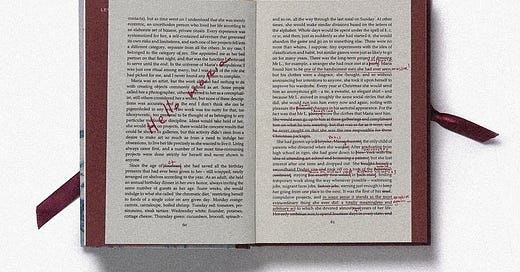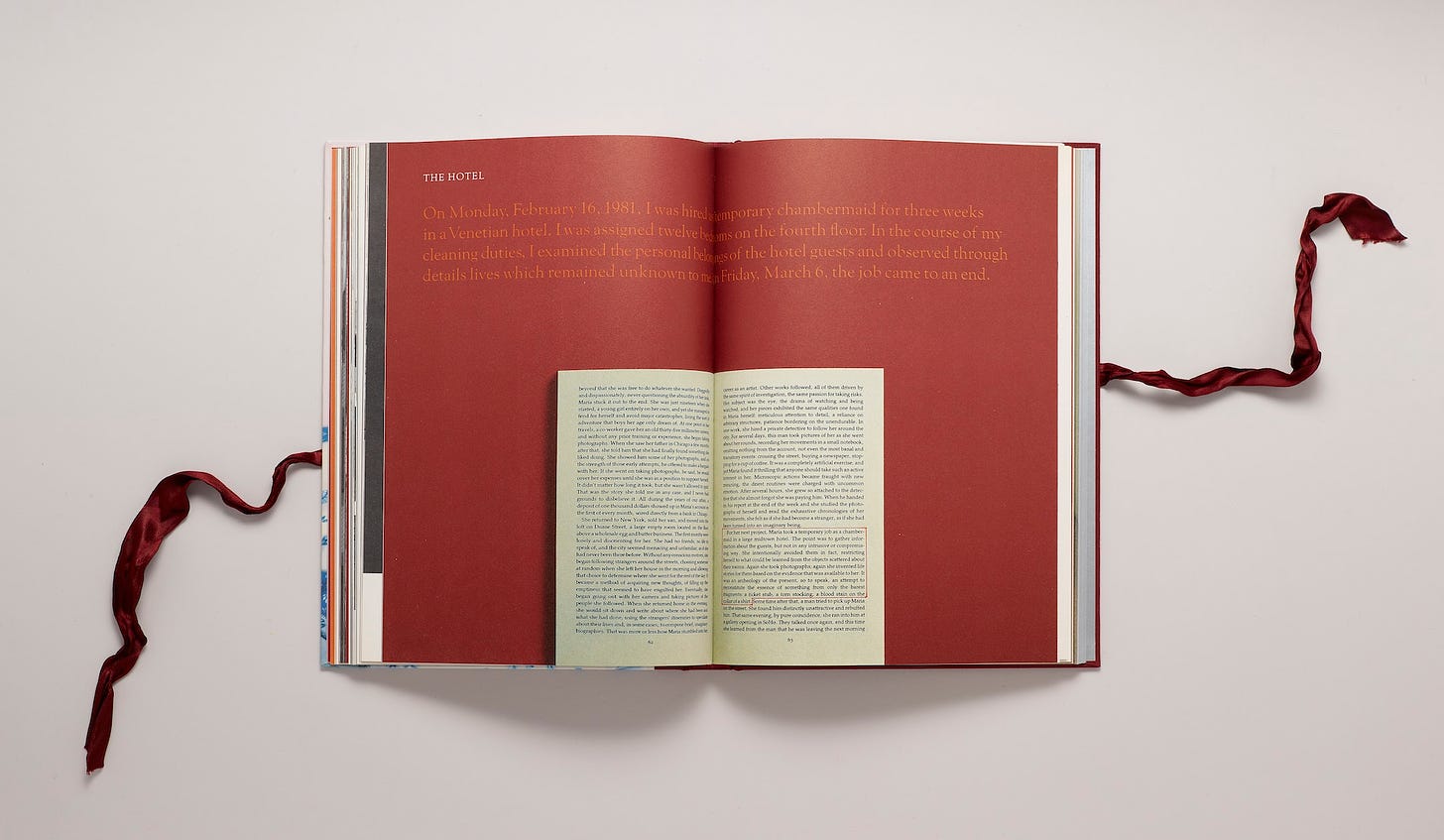I have always loved writing, because it is at heart a telepathic medium.
The words exist, but only as experienced in a reader’s mind.
From mine to yours, we meld — thoughts, feelings, ideas, histories.
An unread page is dead.
In that sense, books are both ephemeral and infinite. At one point in our past, the communion of story was purely verbal; passed down imperfectly between us, in oral tradition, embellished and brought to new life in every telling.
In the silicon era, content is everywhere; far from special. Reports vary as to the nature of our experience when we read digital text instead of print, but some say we retain less because it lacks the multisensory tactility of a physical book. Pixels are just more forgettable.
…
Recently, I met a designer whose portfolio included the masterful Double Game by Sophie Calle. It is a titan of text-as-art.
He told me how he’d met Sophie in her studio in Paris, the air full of her cheeky, mischievous presence, and after a little conversation over tea, she produced the personal, handwritten journal which was to be the basis of the book.
It was battered and clearly loved, written in every day, with photos and loose scraps of paper and sheets all tied together with ribbon.
In an instant he knew the final form of the book. Why mess with raw perfection?
The published edition of Double Game reflects the idiosyncracies of Calle’s mind and practice. It is a beautifully bound and chaotic mess of thought, feeling and experiment. It contains stories, lies, depictions of art, art in its telling, diaries of voyeurism, precise documentation of days to the minute.
Above all else, it reflects a vision, the labours of self-expression.
To hold it isn’t just to pick up five hundred grams of printed words, but a piece of her. To read her art is to let her slip into your mind through the eyes.
…
Since the printing press, writing has been bound up with replication. To homogenise and mass-produce text was natural; how else would ideas reach their largest audience? The internet made mass-communication essentially free to anyone who can build an audience. We carry around media empires in our pockets.
Generative intelligence changes that, at least for me.
Synthetic text is inherently mass-produced; words from an AI are the product of AI, and also its ingredient. The raw materials are human inspiration; large language models scrape their materials from the ether, combine harvesters of the verbal fields.
Content is no longer special; anything good is even rarer, and so that sets a higher bar on what is worth reading.
The truth often missed on the topic of writing is that writing is more than just thinking, and certainly more than the stringing-together of sentences. Searing clarity of thought is not the only measure of its quality, nor is the precision of its craft.
Great writing taps into a rich vein of truth, absolutely, but that truth is felt in the body before the mind. The gut before the brain. Great writing has a physicality, it pulls its unique energy straight out of us, body and soul (if you believe in a soul). The technical process of good writing has to become subconscious. You can't think and write, just like you can't think and come. The act of creation delves into us beyond just brain power, it requires physical exertion.
It requires you to find and reach within yourself not just the words but the temporary state of being, your precise feelings at that precise moment. It is an artefact of something momentary and unique.
For that reason, I find a deep, unexpected connection between writing and performance art. At its most atomic, the process is physical more than mental, emotional more than verbal.
To hold a book is to hold more than pages, just as to read synthetic writing is to read content that can never be truly equivalent to an artistic TEXT.
A book is a physical act.
.
.
.







You knew I’d love this one! So great to hear the backstory of that meeting with the Sophie Calle book designer 🙌